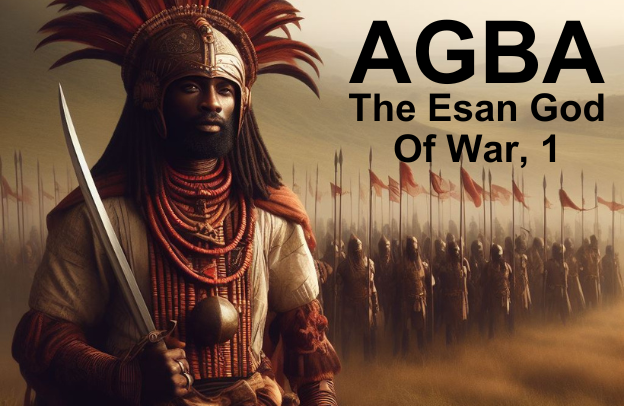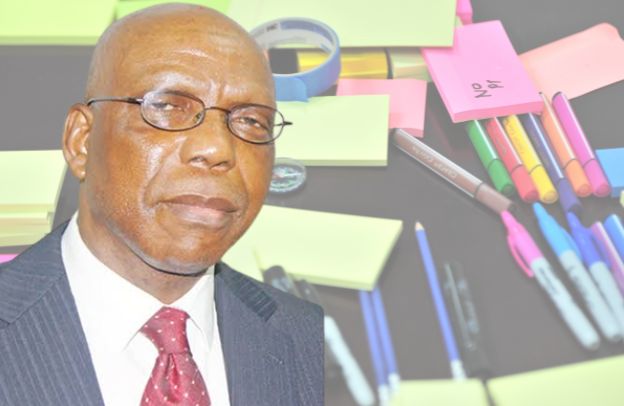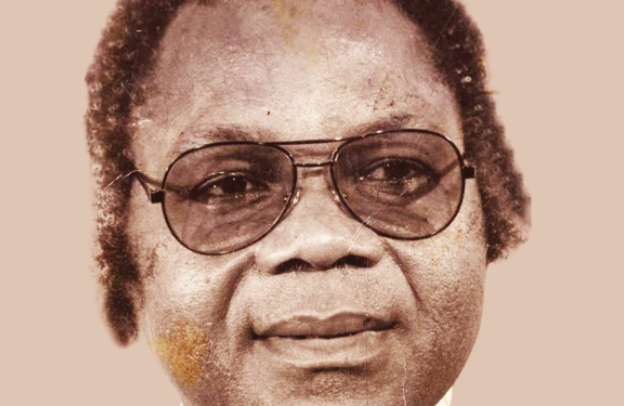General Johnson Aguiyi-Ironsi, The First Military Head Of State of Nigeria – 1924 To 1966

General Johnson Aguiyi-Ironsi was a Nigerian military officer and the first military head of state of Nigeria. He took control of the government amidst the chaotic aftermath of the blooding military coup on 15th January 1966, which resulted in the death of the first Nigerian prime minister among other prominent political leaders in the country. Within a brief span of six months in power, Aguiyi-Ironsi himself would face a countercoup on July 29, 1966, leading to his own death.
Want to learn more about storytelling? Start by downloading the first chapter of The Storytelling Series for Small Businesses.
In today’s video, we will learn about Johnson Aguiyi-Ironsi and his involvement in bringing an end to the Nigerian First Republic and the democratically elected government, plowing the country into the catastrophic situation we still find ourselves to date.
His Early Life And Education
Aguiyi-Ironsi known with his full name as Thomas Umunnakwe Aguiyi-Ironsi was born on the 3rd of March 1924 in Ibeku, Umuahia, Abia State. His father is Ezeugo Aguiyi. At the tender age of 8, he found himself living with his elder sister, Anyamma, who was the wife of Theophilus Johnson, a distinguished diplomat from Sierra Leone, stationed in Umuahia at the time. Together, they became the guiding lights in young Ironsi’s journey through life.
When a child is born, you hold the child in your hand and breathe an air of satisfaction that a new world is open to you as if you can almost read the future and foretell what that child will be. But you don’t know what that child will become. Maybe that child is going to bring greatness to the family and the community or maybe lead to the demise of the same, and you have no way of knowing that. But you must do your best and hope for the better.
You would have noticed that Ironsi is referred to as “Johnson Aguiyi-Ironsi” as if Johnson was the actual surname. Well, that is because he adopted his brother-in-law’s name, Theophilus Johnson, probably because that was the man he saw as his father figure and so adopted his name as his first name.
His Military Career And Rise To Prominence
In 1942 at the age of 18, he joined the Nigerian military against the wishes of his sister. Aguiyi-Ironsi’s military career began as a private military contractor in the seventh battalion, and he steadily climbed the ranks. In 1946, four years later, he became a company sergeant major, followed by a training course at Staff College in Camberley, England, which he successfully completed. Subsequently, in 1949, he was promoted to the position of second lieutenant in the Royal West African Frontier Force.
His rapid ascent continued, reaching the rank of Captain in 1953, and just two years later, in 1955, he was promoted to Major. Aguiyi-Ironsi had the honor of being selected as an equerry for Queen Elizabeth II during her visit to Nigeria in 1956. As a result of his service in this esteemed role, he was awarded the Member of the Royal Victorian Order (MVO) distinction.
In 1960, Aguiyi-Ironsi was appointed as the commandant of the fifth battalion in Kano, Nigeria, holding the rank of lieutenant colonel. During the same year, he demonstrated exceptional negotiation skills when he personally secured the release of Australian medical personnel and Nigerian troops who were captured by some rebels in Congo. For this remarkable act, he was awarded the Rita Kreuz Award.
Between 1961 and 1962, Aguiyi-Ironsi served as the military diplomat to the Nigeria High Commission in London, United Kingdom. It was during this period that he was promoted to the rank of Brigadier-General. Throughout this time, he also attended various courses at the Imperial Defense College (renamed Royal College of Defense Studies in 1970), located in Seaford House, Belgrave Square. But what was going to happen next was going to blow everyone out of the water.
The Blooding Coup That Leads Him Becoming Head Of State
On January 15, 1966, a significant event unfolded in Nigeria that would have far-reaching consequences for the country’s political landscape. It was a coup d’état, a sudden and violent overthrow of the government, orchestrated by a group of rebellious soldiers led by Chukwuma Kaduna Nzeogwu and Emmanuel Ifeajuna.
During this fateful day, these determined soldiers carried out a bold attack that resulted in the tragic loss of 22 lives. Among the casualties were the Prime Minister of Nigeria, several prominent political figures, and high-ranking Army officers, along with their wives. The perpetrators did not hesitate to eliminate those perceived as obstacles to their mission, including the guards who were on protective duty.
That was how Aguiyi-Ironsi became the Nigerian military head of state in January 1966. He would stay in that position until 29 July of the same year, when a group of Northern army officers would revolt against the government with a counter-coup and kill Aguiyi-Ironsi.
The aftermath of this coup and counter-coup sent shockwaves throughout Nigeria and the international community, leaving the nation in a state of turmoil. It marked a significant turning point in Nigeria’s history, leading to a series of political upheavals that would shape the country’s future for several years to come.
In the years that followed, Nigeria experienced various military regimes, instability, and power struggles, altering the trajectory of its governance and society. The events of January 15, 1966, have since been widely studied and debated. Different historians, local and intentional have analyzed the situation, seeking to better understand the complex web of factors that culminated in this tragic and pivotal moment in Nigeria’s history.
By August 1, 1966, a day after the countercoup, Lieutenant Colonel Yakubu Gowon became Nigeria’s second military Head of State. Meanwhile, the aftermath of the coup left Ironsi and his host, Lieutenant Colonel Francis Adekunle Fajuyi, the military Governor of Western Nigeria, laid to rest in unmarked graves at Iwo, just outside Ibadan. The echoes of that chaotic period attracted a lot of attention across Africa and the world.
In an article, titled: “Ironsi: His mission, travails, and legacies”, available on TheNationOnlineng.net, Ruth First, writer of (The Barrel of a Gun) was quoted as follows: “Within three days of the July outbreak, every Igbo soldier serving in the army outside the East was dead, imprisoned or fleeing eastward for his life”. This is the horrible situation that would eventually precipitate the country into a bloody war, leading to the death of more than a million Nigerians in 3 years.
But just out of curiosity. Is it possible that these young military officers knew exactly what they were doing, like a clear plan of action other than the confusion and the ethnic tension that was created? Could they have been acting out a script that was written for them, without getting a full picture of what was going to happen? Just thinking.
The Abolition Of Regionalism For Unitary Federalism
The following is a clip from a publication, titled “Nigeria’s Unitary Federalism” and it’s available at the website of Council On Foreign Relations, Washington DC:
“In May 1966, General Johnson Aguiyi-Ironsi, Nigeria’s first military head of state—also known as Johnny Ironside for his exploits in a peacekeeping mission in the Congo—promulgated the infamous Decree No. 34 of 1966, the “unification decree.” The decree effectively did away with the federal system of government practiced by Nigeria since its independence from British colonial rule in 1960.”
What Aguiyi-Ironsi did in his effort to discourage tribalism and sectional interests was to focus on the urgent task of national reconstruction. He did this by instituting a unitary system of government. But what is a unitary system of government?
Ironsi aimed to curtail regional tensions and promote a sense of collective responsibility for the nation’s progress. I understand that will need further explanation so we will come back to it on a separate video.
However, while Nigeria as a country urgently needs to revisit its national identity and common dream to take the people along, each state should be able to formulate its individual developmental policies without necessarily depending on the central government as if the local people were incapable of solving their own problems.
From power generation, trade, employment initiatives, food production, and internal security, each of the 36 States of the Nigerian federation should be able to find a workable solution to their problem, instead of the “Father Christmas type” of federalism, currently in place in Nigeria. Again, this needs further clarification, so we will need to come back to it on a different video.
Going further, in the earlier publication, it added that “Another victim of Nigeria’s problematic federal system is the security sector, especially in policing, where the federal government has exclusive powers. The inflexibility inherent in the policing system has led to an ineffective force, hunted by issues of poor funding, a history of human rights violations, and unqualified allegiance to the central government—all to the detriment of the people. You can read the full publication for yourself. Coming back to Aguiyi-Ironsi, what lesson can we learn from his story?
Legacy And The Lessons Learnt
Yes, there might have been some grievance and reason to take some action but the coup that brought in Aguiyi-Ironsi as military head of state should never have happened. No, it should never have happened because it was too costly for Nigerians, and our nation that needed all the energy to grow up.
As a people, we must learn to talk to one another and iron out our grievances because if we fail to do that and fight one another, we will still come back to the roundtable after we have destroyed lives and properties. So, was it not better to avoid the casualties?
You see, we study history not because we want to return to the past but so that we can learn from our mistakes and look for ways to grow beyond them. This surely was a costly mistake, and we certainly must learn from it and grow beyond it.
Want to learn more about storytelling? Start by downloading the first chapter of The Storytelling Series for Small Businesses.






